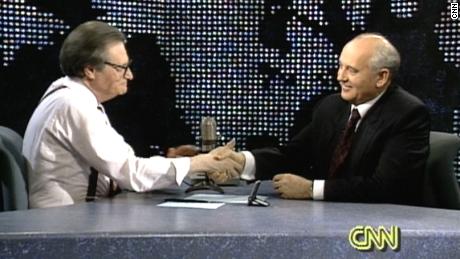Mikhail Gorbachev — the last leader of the former Soviet Union from 1985 until 1991 — has died at the age of 91.
Gorbachev died after a long illness, Russian state news agencies reported.
“Mikhail Sergeevich Gorbachev died this evening after a severe and prolonged illness,” the Central Clinical Hospital said, according to RIA Novosti Tuesday.
The man credited with introducing key political and economic reforms to the USSR and helping to end the Cold War had been in failing health for some time.
Russian President Vladimir Putin expressed his condolences, Putin’s spokesman, Dmitry Peskov, told RIA Novosti.
Putin will send a message on Wednesday to Gorbachev’s family and friends, RIA Novosti added.
Other world leaders also paid tribute to Gorbachev on Tuesday, with US President Joe Biden calling him “a man of remarkable vision” in a statement.
“As leader of the USSR, he worked with President Reagan to reduce our two countries’ nuclear arsenals, to the relief of people worldwide praying for an end to the nuclear arms race,” Biden said, adding that Gorbachev’s reforms led to “a safer world and greater freedom for millions of people.”

Ursula von der Leyen, President of the European Commission, wrote on Twitter that Gorbachev’s role in ending the Cold War “opened the way for a free Europe. This legacy is one we will not forget.”
With his outgoing, charismatic nature, Gorbachev broke the mold for Soviet leaders who until then had mostly been remote, icy figures. Almost from the start of his leadership, he strove for significant reforms, so the system would work more efficiently and more democratically. Hence the two key phrases of the Gorbachev era: “glasnost” (openness) and “perestroika” (restructuring).
“I began these reforms and my guiding stars were freedom and democracy, without bloodshed. So the people would cease to be a herd led by a shepherd. They would become citizens,” he later said.
He will be buried next to his wife at the Novodevichy Cemetery in Moscow, RIA Novosti reported citing the Gorbachev Foundation.



